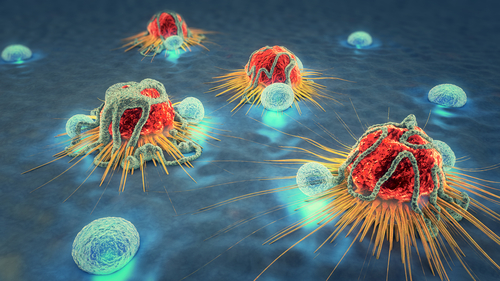Researchers at Philadelphia’s Wistar Institute have developed a method that delivers synthetic DNA coding for anti-cancer antibodies to cancer patients, allowing for sustained production of these therapeutic antibodies in a patient’s bloodstream without multiple injections.
The team described using the technology to produce antibodies that bind to PSMA, a prostate cancer protein. This attracted specialized immune cells to the cancer cells, shrinking the tumor and increasing survival.
But the method, called DNA-encoded monoclonal antibody (DMAb), has only been tested in mice thus far, and more studies are required to determine its safety and feasibility in cancer patients.
The Wistar study, “Novel prostate cancer immunotherapy with a DNA-encoded anti-prostate-specific membrane antigen monoclonal antibody,” appeared in the journal Cancer Immunology, Immunotherapy.
“This is an important demonstration of the possibilities opened up for immunotherapy by DMAb technology to direct in vivo production of antibodies of major relevance to human cancer,” David B. Weiner, the study’s senior author, said in a news release.
“There is a great need for such new approaches for prostate disease as well as many other cancers,” said Weiner, who is also the institute’s executive vice-president. “As recent data suggest, PSMA is an important cancer antigen expressed on many human prostate, bladder, renal as well as ovarian cancers, so additional study of the possible benefits of this therapy are important.”
Scientists have long studied the PSMA protein as a potential target to promote anti-tumor immune response and control the progression of prostate cancer. But specific antibodies targeting PSMA have only demonstrated limited efficacy. This is mainly because low antibody stability requires frequent dosing to achieve therapeutic efficacy, not to mention the high costs of such treatments.
The novel DNA-based therapy developed by Wistar researchers aims to deliver the instructions required for a patient’s body to produce an anti-PSMA antibody in a sustained manner.
In mice, this approach effectively induced production of anti-PSMA antibodies and their release into the bloodstream. These antibodies accurately targeted PSMA-positive cancer cells, luring immune cells to cancer cells. This reduced tumor volume and increased survival.
Wistar officials say this same approach might work for a multitude of cancers and other human diseases for which targeted therapy is used.
“Our data provide proof of concept that DMAb-engineered DNA plasmids can be successfully used to target important cancers,” said Kar Muthumani, the study’s first author and assistant professor at Wistar’s Translational Tumor Immunology Program. “The unique features of our synthetic DNA-based system make it a promising novel approach for cancer therapy, alone or in combination with other treatments.”

